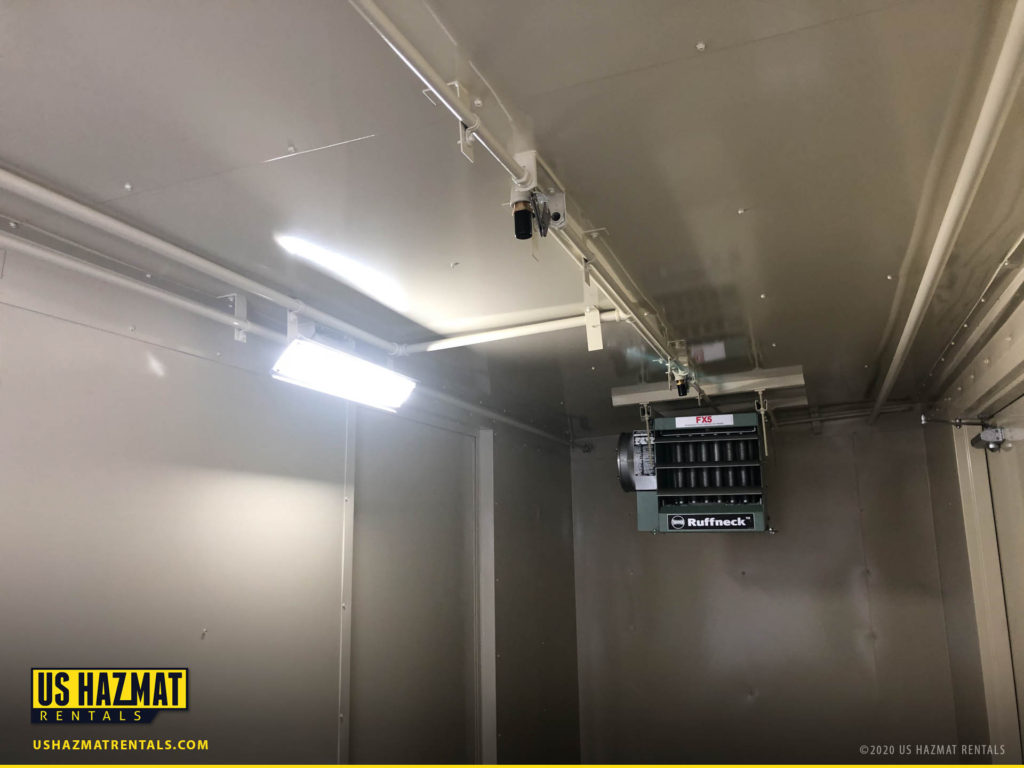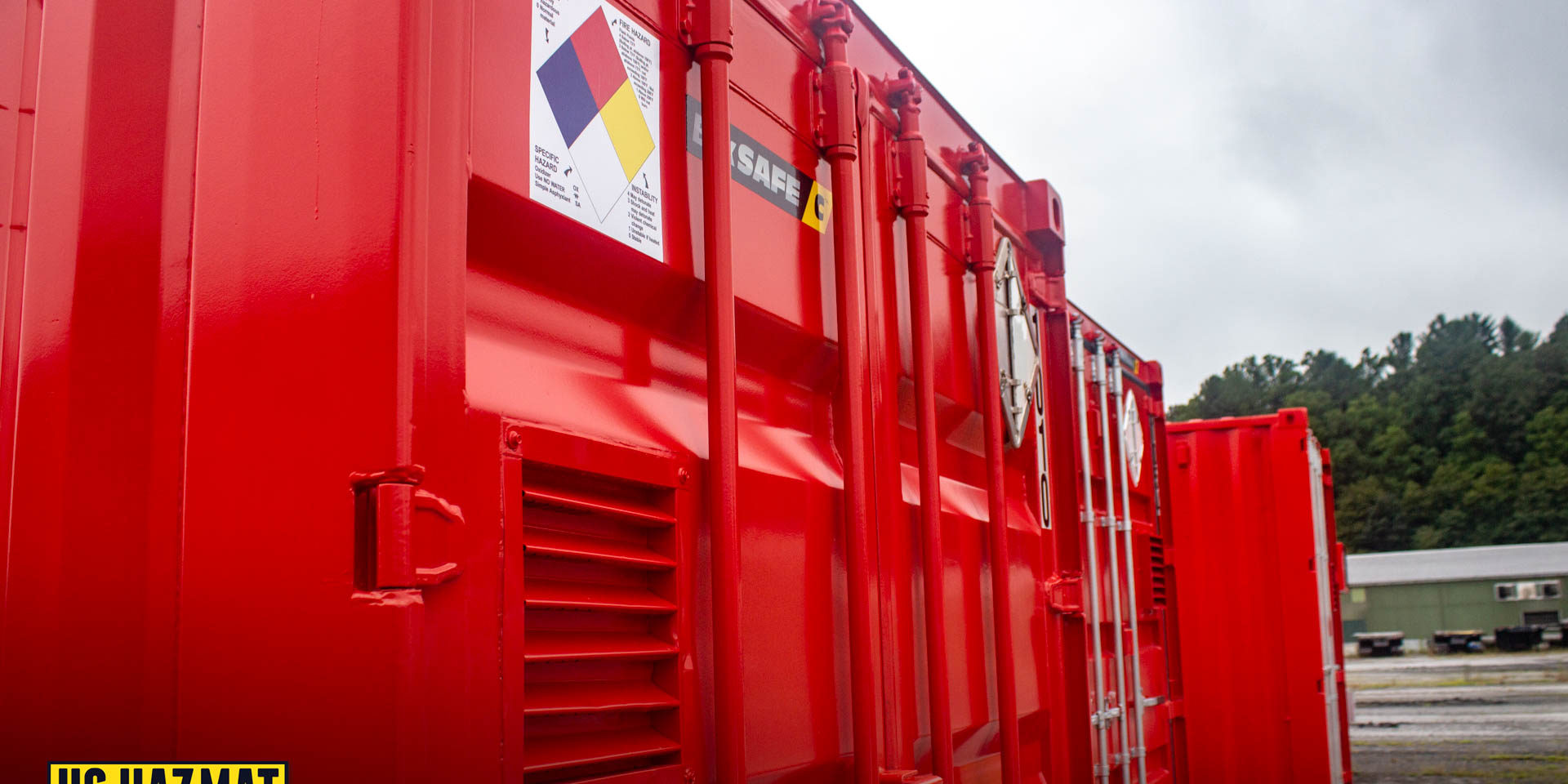Cooler minds prevail when investing in compliant chemical storage. With temperatures plunging below freezing across the nation, many companies are preparing to winterize chemical stockpiles. Although flammability and the tendency for dangerous chemicals to explode when exposed to high temperatures are some of the most common concerns when it comes to chemical storage, colder weather poses certain insidious risks that require mitigation. Freezing temperatures can cause liquids to expand, potentially cracking storage containers, resulting in leaks and environmental contamination. Compliant winter chemical storage from U.S. Hazmat Rentals can provide year around protection, regardless of the season.
Mitigate Destruction With Compliant Protection
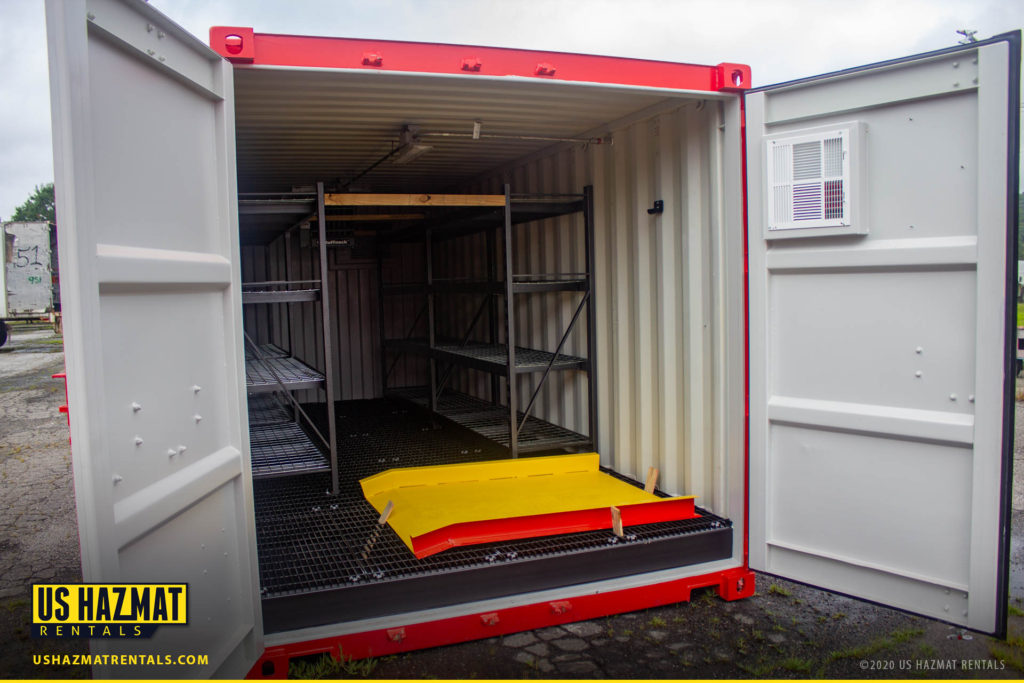
While rapid temperature inversions will surely increase product volatility, many business overlook the dangers of cold weather. If structurally compromised due to freezing temperatures, chemical drums and totes will allow toxic chemicals to permeate the soil and adjacent waterways. Errant sparks can ignite renegade leaks before quickly compromising an entire stockpile. Rising retail prices and bulk purchasing have also caused a rush on highly sought after and scare chemicals. While the temptation to secure pesticides and solvents for long-term production might seem tempting, hoarding dangerous chemicals creates perilous conditions and primes a powder keg for destruction.
Protect Chemical Consistency With Climate Controlled Storage
Understanding simple physical reactions doesn’t require an advance degree in physics or chemistry. Sensible storage practice and an appreciation for extreme environments can prevent a litany of missteps on any jobsite. For example, what happens if you leave a can of soda in your home’s refrigerator? If left unchecked, the carbonated beverage will expand before bursting and leaving a frozen sticky residue on your TV dinners and carton of ice cream. Similar chemical reactions will take place on the job-site in below freezing conditions. Temperature inversions can also compromise chemical consistency. If left in the cold, motor oil becomes thick and viscous, and basically unusable. Latex paints can also freeze if exposed and cold weather will render certain pesticides useless once their precursor chemicals begin to separate on chilly nights.
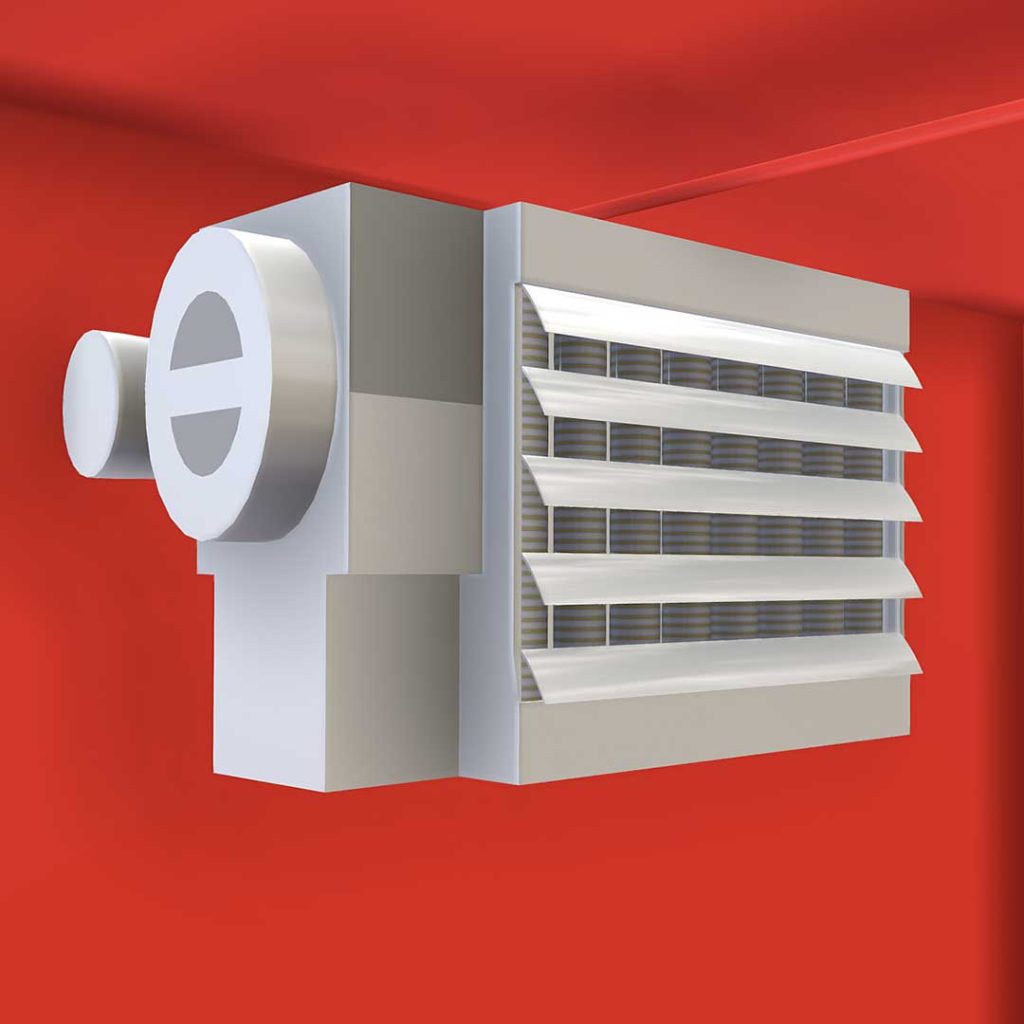
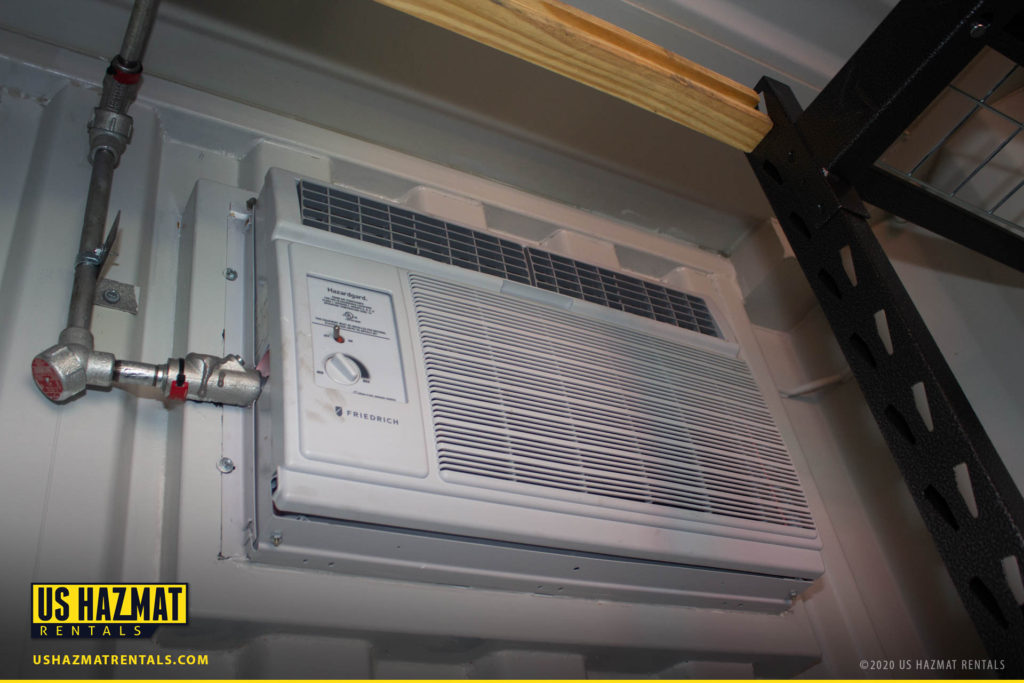
Most paints and industrial coatings should be stored between 60 and 80 degrees Fahrenheit. Pesticides should likewise be stored at 40 to 100 degrees while motor oil enjoys a similar comfort zone. Our climate controlled chemical storage lockers, equipped with a 7.6KW convection heater can provide optimal winter chemical storage conditions. Each heater also includes a temperature thermostat that covers a range of 36 to 82 degrees Fahrenheit. Likewise, our explosion proof wall-mounted air conditioners can preserve chemical consistency during summer months for temporary storage. Fiber insulation in both the wall and ceilings will also enhance energy efficient storage locker to ensure that heat or cool air, depending on your storage need, does not escape.
